|
The
United Roman-Ruthenian Church certifies clergy primarily through its
suffragan jurisdictions, including hte Diocese of Rome-Ruthenian, the
Catholicate of Rome-Ruthenia, and other dioceses under its spiritual
authority. The church maintains a high
standard for its clergy
and religious in accordance with the nature of a clerical or religious
vocation. Applicants seeking to be admitted to the clergy or religious
orders of the of the church are generally accepted from those known
personally to a current
cleric (or a religious in the case of a postulant to a religious order)
of the Church with significant interaction for at
least one year.*
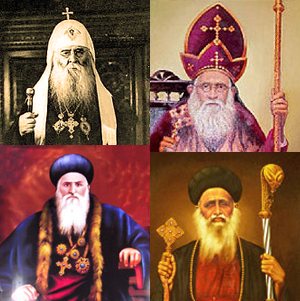
What is Pontifical Orthodox Old Catholicism? History of the United Roman-Ruthenian Church
Key Readings
Spousal Oaths for Married Clergy
Liturgy of the Church
Canonical Married Bishops and Clergy
Clerical Marriage and Apostolic Integrity: Guidelines for
Discerning Spousal Suitability within the Sacred Office
Ecclesiastical Service and Non-Political Engagement
Exercise of Civil Authority by Clergy

Application
Phase
Candidates
must complete the formal application, undergo a background
investigation, and submit the
results of a psychological evaluation by a licensed psychiatrist or
psychologist. Candidates must take the Clerical Oath (permanently
binding upon their admission to the clerical state), the Oath
Against Modernism, and the Application Oath. (Click
here for the text of these oaths.) Upon admission, all
applicants, seminarians, and clergy accept the de facto authority and
jurisdiction of the Holy Apostolic See. Successful candidates at the end
of the Application Phase pass to the Interview Phase. (See also the Clerical Affiliation and Ministry Agreement.)
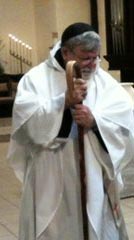
Interview
Phase
Candidates
are then interviewed. Those clerical candidates who
successfully complete the Interview Phase pass to the Postulant
Phase. (Religious candidates who successfully complete this phase
continue with the posulancy and novitiate according to the customs of
their order.)
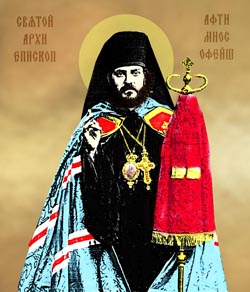 
Postulant
Phase
The
clerical postulancy lasts generally for up to 6 months. This is a
time of continued discernment. At the end of this phase, successful
postulants are admitted as Minor Seminarians in the Apostolic See's
official seminary, Pontifical
Georgian College, and invested with the clerical cassock.
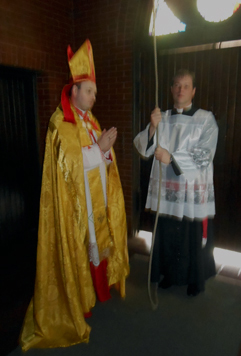
Minor
Seminary
This
period of instruction is designed to be done either in conjunction
alongside the last two years of a general baccalaureate degree or
after completion of a baccalaureate degree. Successful completion
leads to the Diploma of Sacred Theology and admission to Major
Seminary. Minor Seminarians usually receive First Tonsure and the
Orders of Porter and Lector along the course of their studies. Minor
Seminary is required of all candidates and may progress faster for
those already with a baccalaureate degree.
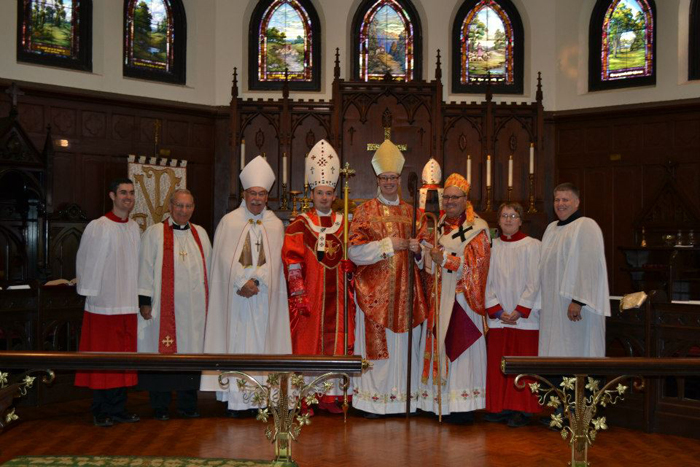
Major
Seminary
This
period of rigorous instruction and practice is typically 4 years in
duration. Seminarians must be in residence at an approved
ecclesiastical facility and may have additional residency
requirements at other facilities for the purpose of ensuring the
highest possible level of training and experience. The course of
study is subdivided into 8 levels, each corresponding roughly to a
semester. Seminarians typically receive the Orders of Exorcist and
Acolyte at the end of Level 3 and Level 4 respectively. The
Sub-Diaconate is usually conferred at the middle of the third year
after passing the required ordination examinations. The Diaconate is
typically conferred at the end of the third year, after interviews
and passing the General Ordination and Liturgical Examinations for
the Diaconate. Successful completion of the Major Seminary course
leads to the Licenciate of Sacred Theology.
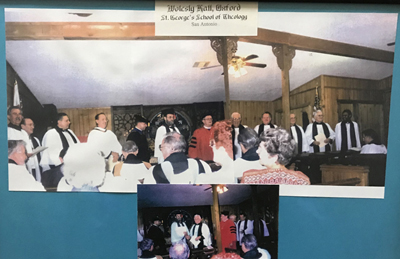
Ordination
Candidate Phase
Those who
have successfully completed the Licenciate of Sacred Theology and
have been ordained to the Diaconate may petition for ordination to
the Presbyterate. This requires an oral examination by a Board of
Examining Chaplains, a written General Ordination Examination, a
written General Liturgical Examination, and other practical
examinations as required. Those who pass these examinations may
petition to their bishop to be admitted and ordained to the
Presbyterate. Ordination is at the final discretion of the
jurisdictional bishop.
*
Occasionally exceptions may be granted for those recommended by a
cleric of the Roman or Anglican Communions or Eastern Orthodox jurisdictions.
[Return
to the Holy Apostolic See Website]
Entire Page Copyright © 2009, 2020, 2022, 2025. United Roman-Ruthenian Church
Legal Statements
|